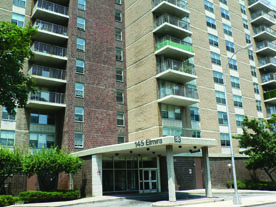
Starrett City
Starrett City, the largest federally subsidized housing complex in the country, will remain affordable for another 30 years, easing the minds of residents worrying that a proposed sale would cause rents there to skyrocket. Earlier in 2009, owners of the 140-acre development sold the property that included affordability provisions for working- and middle-class families — provisions that capped a protracted fight between the owners, elected officials, and tenant advocates and residents worrying that the sale would result in elevated prices due to a high sale price (once thought to be in the $1.3 billion range) could encourage new owners to opt out of an affordable housing component, marketing units to a higher-income demographic.
The 46-tower, 5,881-unit Starrett City will remain affordable under the Mitchell-Lama Housing Program, a state housing subsidy program, following the property’s sale. In July, the current owners picked a final roster of four potential buyers. Most of the bidders are non-profits; tax-exempt groups who could finance the purchase of the Brooklyn property through the sale of bonds — a sale still considered one of the biggest real-estate deals of the year, despite the falling price tag that, according to The New York Times, is now in the $800 to $900 million range. The Brooklyn-based Christian Cultural Center is reportedly the lone remaining bidder on the property.




Comments